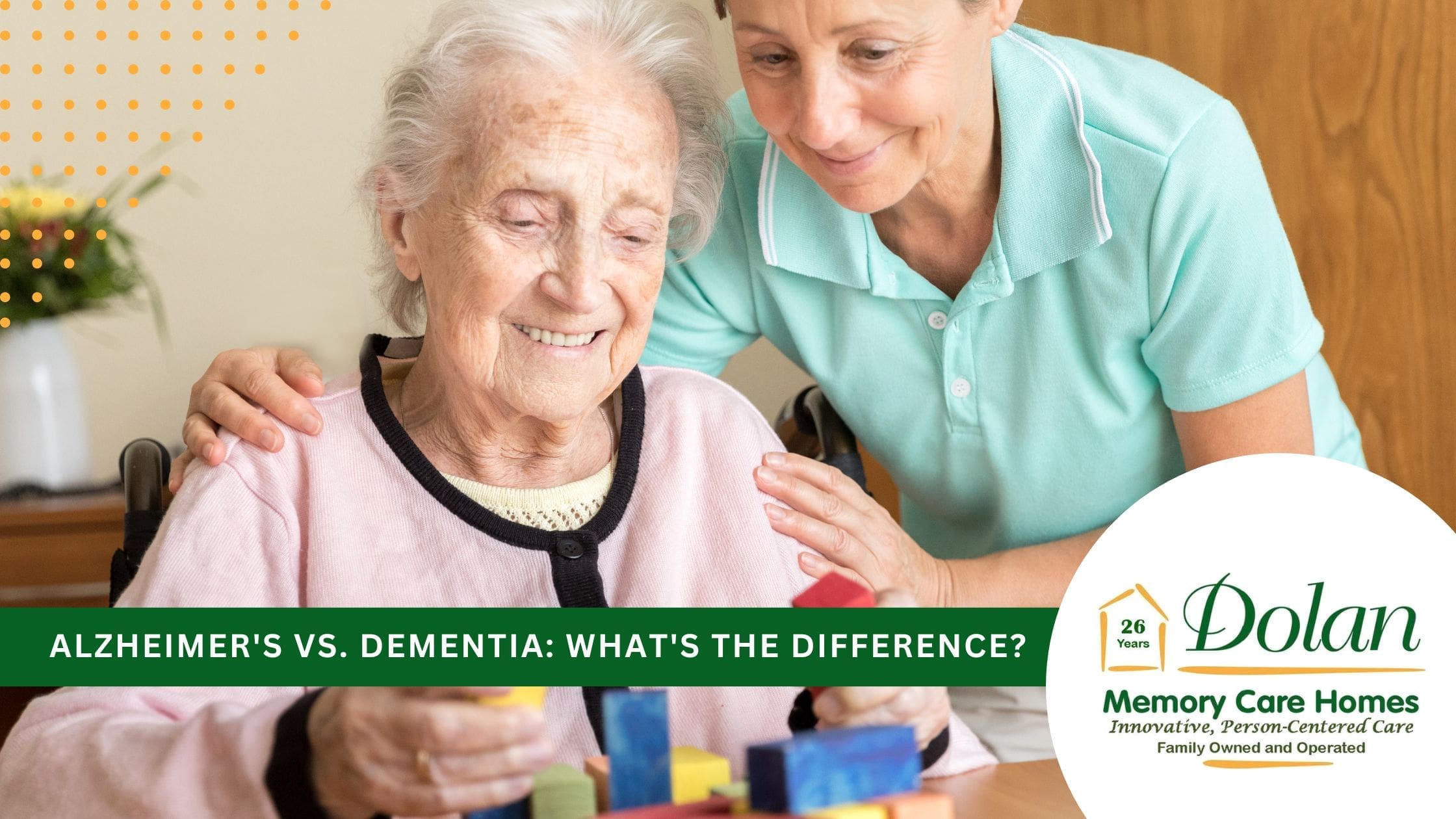While you often hear the terms Alzheimer’s and dementia in the same breath, they are not the same. Here are some of the key differences and facts to know when you are discussing Alzheimer’s vs. dementia.
What Is Dementia?
Dementia is defined as “a condition characterized by progressive or persistent loss of intellectual functioning, especially with impairment of memory and abstract thinking, and often with personality change, resulting from organic disease of the brain.” Put more simply, dementia describes a group of memory impairments that occur with age. Dementia is not one specific disease, but it is also not just normal aging. Common symptoms of dementia include forgetfulness, impaired cognitive functioning, limited social abilities, or wandering behaviors.
What Is Alzheimer’s?
Alzheimer’s Disease is a specific type of dementia. It effects thinking, memory, and behavior. Symptoms are progressive, and in most cases grow severe enough over time to get in the way of normal daily tasks.
One of the earliest symptoms of Alzheimer’s is the inability to learn and remember new information. Over time, symptoms can worsen to include disorientation, mood changes, serious memory loss, and difficulty speaking.
Currently, there is no cure for Alzheimer’s. Research is constantly being conducted into new forms of treatment and potential cures for this debilitating disease.
Other Common Types Of Dementia
Besides Alzheimer’s, there are quite a few other forms of dementia as well. Other common types of dementia include Vascular, Lewy Bodies, Parkinson’s and Frontotemporal Dementia.
Vascular dementia is characterized by reduced blood flow to various regions of the brain, leading to a decline in thinking skills.
Dementia with Lewy Bodies is a progressive dementia that can cause hallucinations, sleep disorders, slowed movement, and tremors.
Parkinson’s disease dementia can develop in those who have been diagnosed with Parkinson’s Disease and causes a decline in thinking and reasoning skills.
Finally, Frontotemporal dementia is caused by nerve cell loss in the brain’s frontal lobes. Symptoms can include a deterioration in behavior or personality, and language difficulties.
Alzheimer’s vs. Dementia Care
In general, the type of care required for people with Alzheimer’s and dementia is similar. The level of care needed varies based on whether there is mild cognitive impairment, or the symptoms are more severe.
The best memory care facilities provide care for Alzheimer’s and other types of dementia. Dolan Memory Care communities provide a home for people with all kinds of memory impairment, offering personalized care that is catered to the needs and preferences of each individual. So whether you are looking for memory care for Alzheimer’s, or memory care for other forms of dementia like Vascular dementia or Frontotemporal dementia, Dolan Memory Care can help.





